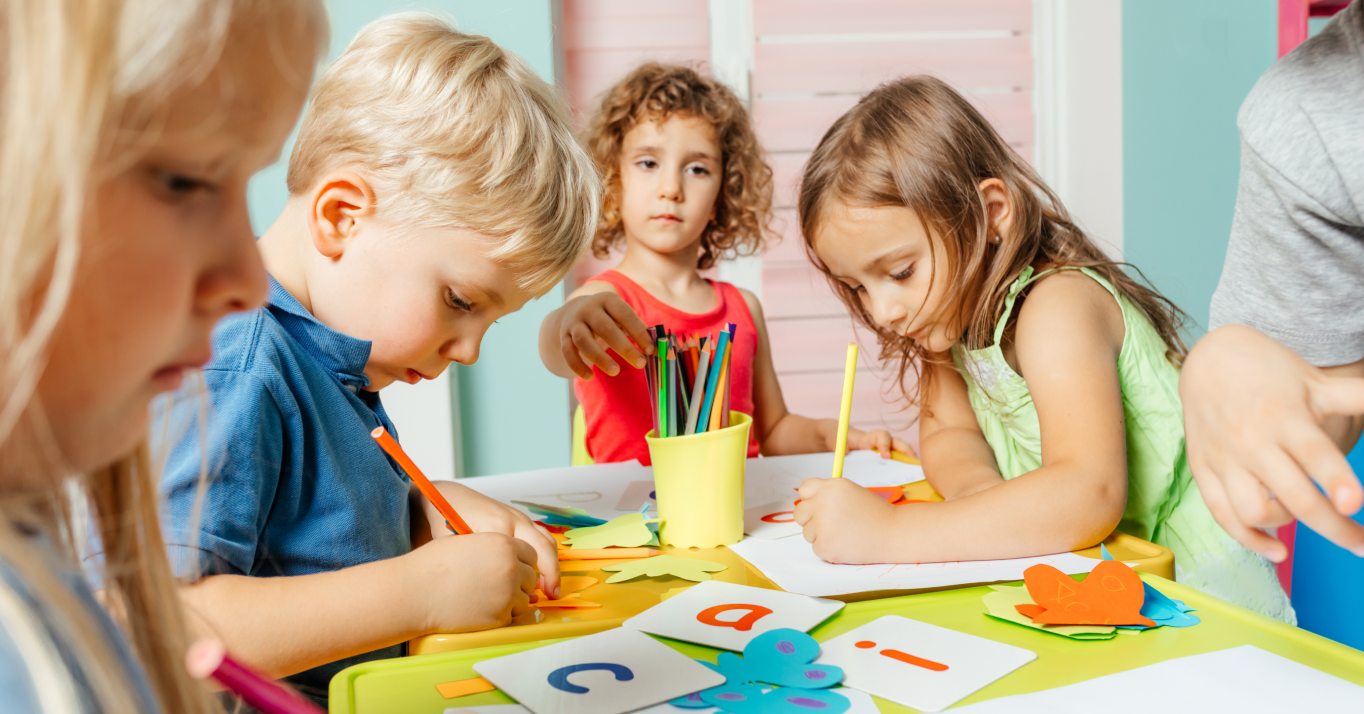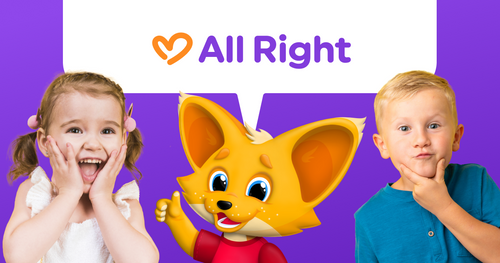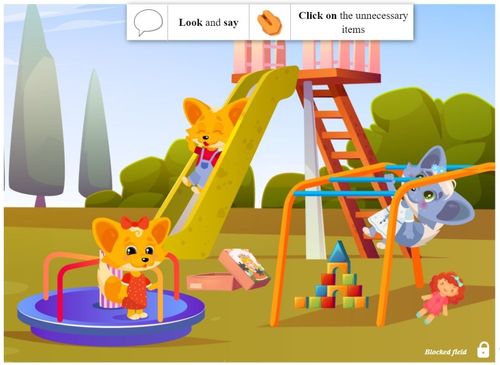This technique is based on complete immersion in the English-speaking environment. The teacher, from the first lesson, speaks only English. In order for the child to understand better, the teacher uses gestures, pictures, audio and video. A child learns a foreign language in the same way as they learn to speak their native language. This method has a number of advantages.
The language is perceived better
When a child focuses on language perception, they can pay more attention to the language itself and not to the translation. This means that they can better understand grammatical rules, pronunciation and other aspects of the language without constant translation into their native language.
Instead, if the child focuses on translation, the attention is focused on transforming words and phrases from one language to another. This can be difficult for young children who do not yet have enough practice. In addition, the translation may not always be accurate, which can lead to the wrong perception of the language and even the wrong learning of grammar.
Thus, when a child focuses on language perception, they can better understand and remember new words and expressions, and better develop language skills. This allows one to learn the language more effectively and achieve better results in the process.
The child starts speaking the language at the first lesson.
When a child starts speaking a foreign language right from the first lesson, they quickly gain practical experience of using the language. This helps feel more confident when communicating in a foreign language and makes one feel more comfortable in another language environment.
Also, the child gets used to the sound and use of new words and constructions in a natural context. In addition, they learn grammar and vocabulary faster, because the child pays attention to the correct use of words and constructions during conversation.
Better motivation
The method of immersion in an English-speaking environment helps to create optimal conditions for improving the child's motivation to learn a foreign language. Immersion in an English-speaking environment means that the child is completely immersed in the English language, from the beginning to the end of the lesson. This allows the child to experience the language and constantly work on improving their knowledge.
In addition, children constantly communicate with teachers and each other using English. This helps them understand that language is not only a subject to study, but a means of communication and connection with other people.
This environment creates unforgettable experiences and allows children to learn with joy and pleasure. When a child feels that they can use English for fun, communication and even work, they become more interested in learning the language.
Cultural development
When learning a foreign language according to our methodology, the child gets the opportunity to immerse in the culture and traditions of the country where that language is spoken.
For example, when a child learns English, he/she can learn about the history and culture of Great Britain, the United States, and other countries where English is the official language. They can learn about the traditions of celebrating Christmas, Halloween, Valentine's Day and other holidays.
In addition, learning a foreign language can contribute to the development of intercultural competence - the ability to understand and respect different cultures. The child can learn about various cultural differences, customs and traditions of other countries, which will help expand their worldview and become a more open and tolerant person.
Also, learning a foreign language can be the first step to further study other aspects of the culture of countries where this language is dominant, such as literature, art, music, cuisine and others. This can stimulate the child to further self-development and expansion of their knowledge.

Development of analytical abilities
Our method helps to analyze grammatical rules and language structures. This contributes to the development of analytical abilities in children, in particular, the ability to think logically, analyze information and summarize data.
When learning a foreign language, using the method of full immersion in the language environment, the child must understand the grammatical rules and structures of the language, as well as be able to apply them in practical tasks, such as creating sentences, statements and dialogues. This process requires some level of logical thinking and attention to detail, which helps develop analytical skills.
In addition, learning a foreign language allows a child to make a comparative analysis between different cultures and languages. This process also requires developed analytical skills, as the child must analyze and compare different aspects of culture and language in order to understand their differences and commonalities.
Creativity
Also, in the process of learning a foreign language, a child can participate in various creative activities, which contribute to the development of creative abilities. For example, they can paint pictures, create a video in a foreign language where they talk about something interesting or make up stories.

In addition, the child can create a creative project in a foreign language, for example, write stories or compose songs. This not only contributes to the development of creative abilities, but also helps to consolidate and deepen the knowledge of a foreign language. All these methods allow the child to creatively use a foreign language and develop creative abilities.
Therefore, our method of immersion in an English-speaking environment has many advantages for children. It promotes better perception and learning of a foreign language, helps to get rid of the language barrier and learn to communicate in English from the very first lesson.
In addition, this method increases motivation to learn the language, helps develop analytical and creative abilities, and deepens knowledge about the culture and traditions of English-speaking countries. In the process of learning, children engage in various creative activities, such as drawing, coloring, theatrical play, and others.
In general, our method allows children not only to learn a foreign language, but also to develop in many other areas, which has a positive impact on their future.








